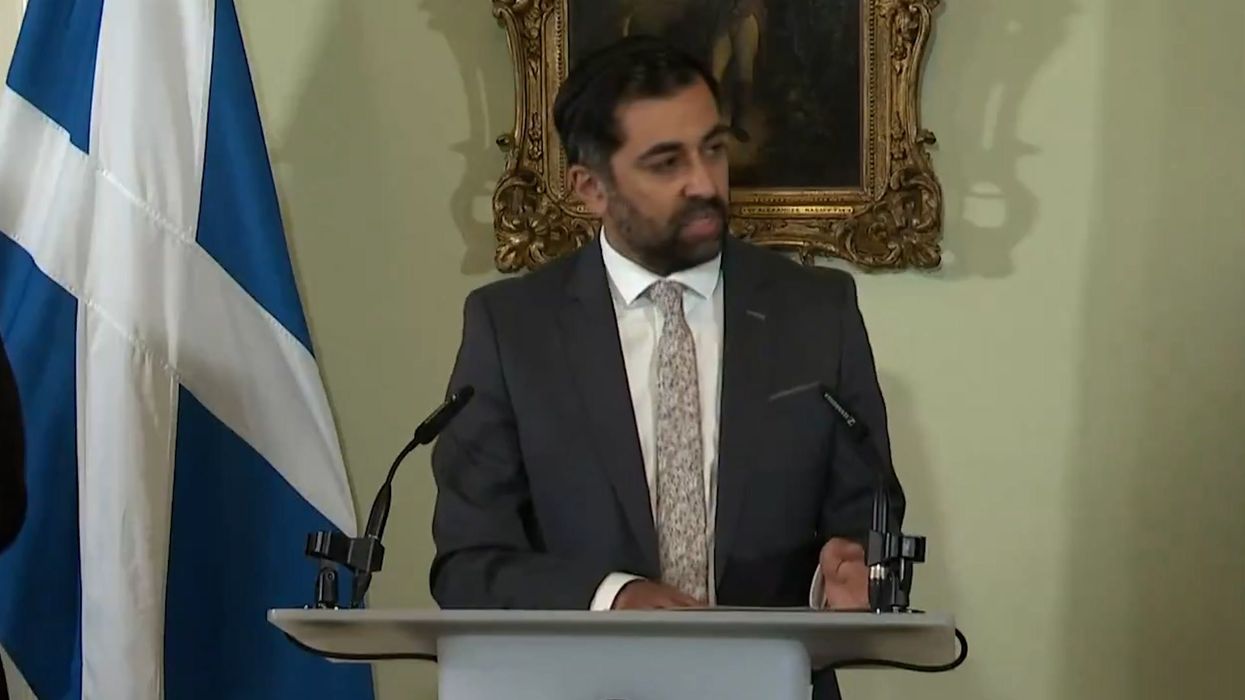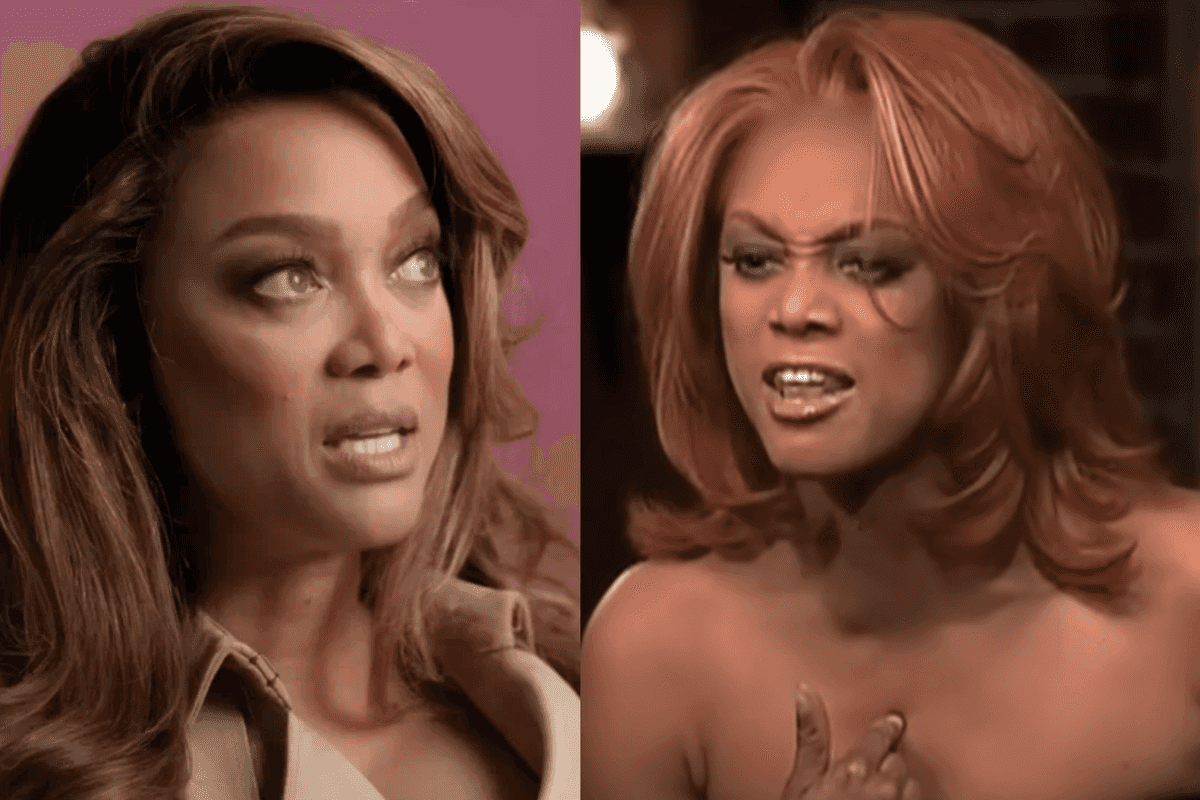Liam O'Dell
Apr 29, 2024
Humza Yousaf fights back tears as he announces SNP resignation
Reuters
A shock resignation came from Scotland on Monday, as Scottish National Party (SNP) leader Humza Yousaf quit the role and job of first minister amid a major crisis for the Scottish government.
Yousaf had written to the leaders of political parties in Scotland urging them to seek “common ground” on ways in which they can “contribute constructively”, with the first minister initially hoping he can host meetings with them at the first minister’s official residence, Bute House, in Edinburgh.
But things soon looked pretty bleak, as Scottish Conservatives leader Douglas Ross described the letter as “humiliating and embarrassing”.
So how exactly did Yousaf and the SNP find themselves in this position?
The Bute House agreement
Back in August 2021, when it was Nicola Sturgeon in the post of first minister, the SNP secured a “wide-ranging cooperation agreement” with the Scottish Green Party which she said “provides a strong foundation … for bold and decisive action”.
She told the Scottish Parliament at the time: “It is not a full coalition – our parties will retain distinct voices and independent identities – but it sets out processes of co-operation and consultation that will enable a firm foundation for the delivery of our shared and transformative policy objectives, and, indeed, for the Scottish Government’s wider legislative and policy programme.
“As part of that, for the first time in UK politics, it will see Greens enter national government as ministers, working in a spirit of common endeavour, mutual challenge and collective responsibility to deliver for the people we serve.”
Scottish Green Party co-leaders Patrick Harvie and Lorna Slater were appointed as minister for zero carbon buildings, active travel and tenants’ rights; and minister for green skills, circular economy and biodiversity respectively, before leaving their roles on Thursday.
The collapse
Now, three years later, Sturgeon has been succeeded by Yousaf and the Bute House agreement is no more, with the first minister announcing during a press conference on Thursday that the decision marks “a new beginning for this SNP government”.
He said: “It is no longer guaranteeing a stable arrangement in parliament - the events of recent days have made that clear – and therefore, after careful consideration, I believe that going forward it is in the best interest of the people of Scotland to pursue a different arrangement.
“That is why, following a discussion with my cabinet this morning, I have formally notified Patrick Harvie and Lorna Slater that I am terminating the Bute House agreement with immediate effect.”
The Greens were already unhappy with the SNP over the party’s decision earlier this month to scrap its target of cutting emissions by 75 per cent by 2030. After the Bute House agreement was terminated (with the SNP now running a minority government), Slater claimed the SNP had “betrayed the electorate”.
She said: “This is an act of political cowardice by the SNP, who are selling out future generations to appease the most reactionary forces in the country.
“By ending the agreement in such a weak and thoroughly hopeless way, Humza Yousaf has signalled that when it comes to political co-operation, he can no longer be trusted.”
The end of the agreement leaves the SNP with its 63 MSPs – just two members short of a parliamentary majority.
Then came another political headache for Yousaf…
The no-confidence votes
Douglas Ross, who heads up the Scottish Conservatives, announced on Thursday that he had tabled a vote of no confidence in Yousaf’s leadership which, if it passes, wouldn’t immediately force the first minister’s resignation, but would certainly undermine the SNP leader’s position.
Ross told MSPs: “He is a failed first minister, he is focused on the wrong priorities for Scotland. He has governed in the SNP’s interests and not in Scotland’s interests.
“He is unfit for office. Shouldn’t this be the end of the road for this weak first minister?”
Slater confirmed the Greens would not support Yousaf in such a vote.
Then came Scottish Labour tabling its own motion of no confidence on Friday, going further than the Tories’ motion in Yousaf to state it has no confidence in the whole Scottish government.
If such a vote passed, all of the cabinet would resign and then parliament would have 28 days to form a new government, otherwise an early election would be called.
In a video released on Twitter/X, Scottish Labour leader Anas Sarwar said: “It’s now clear that is a matter of when, not if, Humza Yousaf steps down as first minister, and it would be completely untenable for the SNP to presume they can impose another unelected first minister on Scotland.
“Scottish Labour has no confidence in Humza Yousaf, but we also have no confidence in this SNP government either, so that’s why today we’ll be laying a motion, saying the Scottish parliament has no confidence in this SNP Scottish government.”
All of this meant Yousaf had to pull out of a speech on Friday in order to fight to maintain his premiership, but on Monday came the announcement of his resignation.
The resignation
Speaking on Monday, Yousaf said he had "clearly underestimated the level of hurt and upset" caused by his decision to end the Bute House agreement and that he would be resigning as SNP leader.
He had previously stated he would not do so and instead fight and win the confidence votes.
"I've concluded that repairing a relationship across the political divide can only be done with someone else at the helm," he said.
Yousaf confirmed he would remain in post until his successor is elected by his party.
Sign up to our free Indy100 weekly newsletter
How to join the indy100's free WhatsApp channel
Have your say in our news democracy. Click the upvote icon at the top of the page to help raise this article through the indy100 rankings.
Top 100
The Conversation (0)














